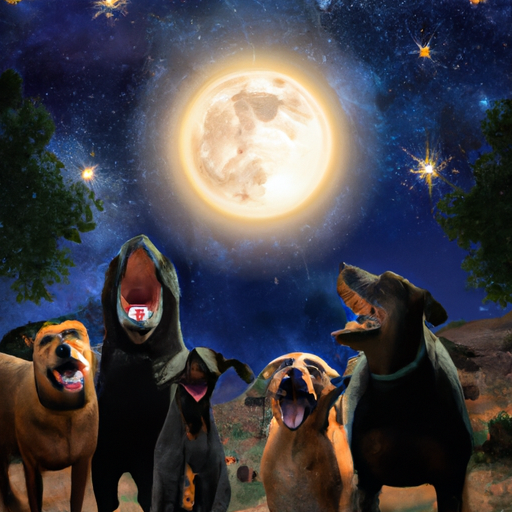“`markdown
Why Do Dogs Howl Together?
Understanding Canine Communication
You’ve probably heard your dog howl, maybe even joined in with the neighborhood dogs to create a canine symphony. But have you ever wondered why dogs howl together? As a caregiver, you’re naturally inclined to understand and support those in your care – and that includes your four-legged friends.
Dogs, like their wolf ancestors, are pack animals. They use vocalizations, body language, and scent marking to communicate with each other. Howling is a form of vocal communication that has several purposes.
- Establishing Territory: Dogs may howl to warn others to stay away from their territory.
- Attracting Attention: Dogs may howl to get your attention or to communicate with other dogs.
- Expressing Distress: Dogs may howl when they’re lonely, anxious, or injured.
The Pack Mentality
When one dog starts howling, others often join in. This is a throwback to their wild ancestors, where howling together reinforced pack bonds and helped coordinate activities. It’s like a group chat, but for dogs!
- Reinforcing Pack Bonds: When dogs howl together, it strengthens their bonds and makes them feel like part of a larger group.
- Coordinating Activities: Howling can help coordinate hunting, defending territory, or other group activities.
Influence of Human Interaction
Dogs’ behavior is also shaped by their interactions with humans. Many dogs will howl in response to certain sounds like sirens, musical instruments, or the sound of their human’s voice.
| Human Sound | Common Dog Reaction |
|---|---|
| Sirens | Howl |
| Instruments | Howl |
| Human Voice | Howl or Bark |
The Health Implications
While howling is a normal part of canine communication, excessive howling could be a sign of a health problem. If your dog is howling more than usual, it’s important to rule out potential health issues. Consult your vet if you notice changes in your dog’s howling behavior.
Training and Management
As a caregiver, you may need to manage your dog’s howling, especially if it’s causing problems with neighbors or disrupting your peace. Training and environmental management can help reduce unwanted howling.
FAQs
Q: Why does my dog howl when I leave the house?
A: Your dog may be experiencing separation anxiety. Consult a vet or a dog behaviorist for advice.
Q: Why does my dog howl at sirens?
A: The high-pitched sound of sirens may trigger your dog’s instinct to howl. It’s not harmful, but it can be startling.
Q: Can I train my dog to stop howling?
A: Yes, with patience and consistency, you can train your dog to reduce or stop howling.
Q: Is howling a sign of pain in dogs?
A: Sometimes. If your dog’s howling is accompanied by other signs of distress or illness, consult a vet immediately.
Remember, understanding your dog’s howling can help you build a stronger bond with your furry friend. So next time they strike up a chorus, you’ll know a little bit more about what they’re trying to communicate.
“`



